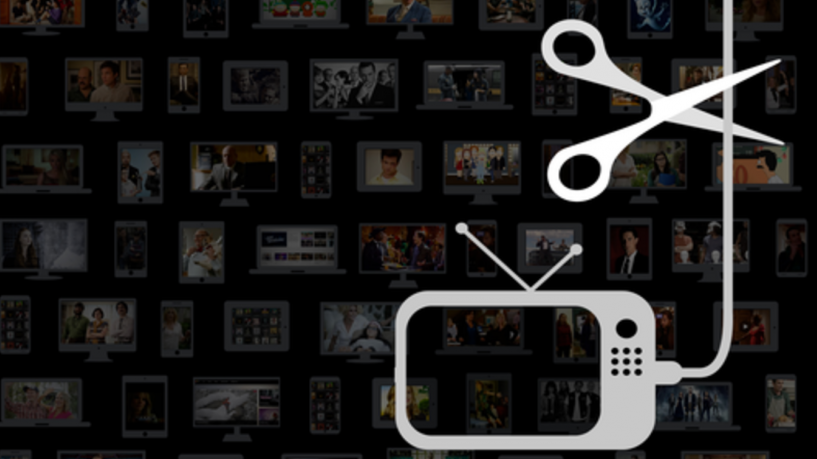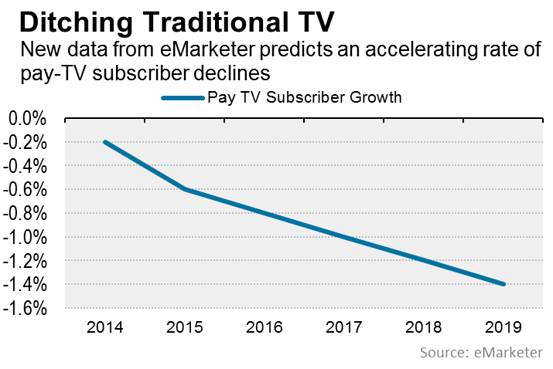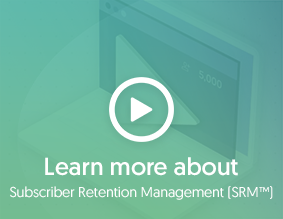It looks like in 2016, 20% of cable viewers will ditch their current cable subscription services and take their first steps towards becoming fully-fledged members of the cord cutting community.
Plus, a recent study carried out by eMarketer predicts that by 81% of US households won’t pay for traditional TV – just let that sink in for a second.
What are your options after you cut the cord?
As we mentioned before, cord cutting is on the rise. As traditional viewing formats dwindle, cord cutting will eventually become the norm in households across the globe; each will have their own unique set-up and preferences, depending on taste, lifestyle and personality – but how much video is too much?
Well, first of all let’s take a quick look at some the measures people are taking when cutting the cord, and what services they are utilising…
- HD Antennas: the channels of many Over The Air (OTA) broadcasters such as Fox and NBC aren’t encrypted, so people are using these types of antennas to pick up their favourite shows and sports events for free.
- PVRs: personal video recorders record and store TV/video footage onto a hard disk in high definition to watch at your leisure. Mostly a PVR incurs a one off payment for the hardware and some services are subject to a small monthly subscription due to the inclusion of an electronic programming guide.
- Content Services: most cord cutters are turning to a mix of free (Crackle and PBS) and pay (Hulu Plus and Netflix) OTT services to satisfy their viewing needs. The video content is streamed on a viewing device of choice and these kinds of services are very versatile, hence their popularity.
- Online TV: amongst other things, online television is becoming increasingly popular in the cord cutting world. There is a huge selection of online television channels and again, some are free and some ask for a small subscription fee.
How does paid content fill the void?
There are countless other methods of cord cutting, in fact, if we were to list every single one this article would probably end up being long than a Dan Brown novel. But, the point is, there is so much content out there that it can be hard to know where to start.
Essentially, streaming video content alone won’t fill all the viewing needs of your average cord cutter. To cover the whole spectrum, certain types of content will have to be purchased on a one off basis (e.g. from Apple TV or Amazon Instant Video) and special events will often need be enjoyed by subscribing to exclusive content providers.
- Live Sports:
- local and niche sports: Boxing, martial arts, horse racing, speedway etc. are sports with highly engaged audience and less mainstream media coverage. Their fans are consuming this video online and for pay-per-view emerged as the preferred model.
- major, mainstream sports: The top sports have exposure on all the mainstream TV channels, but alternative, flexible packages on the web still appear attractive to fans. Subscription/pass offerings like the NFL Game Pass, NBA League Pass, and MLB.tv are doing great and growing in popularity.
- TV shows: Specific shows can still be attractive to some audiences: Apple iTunes (if you own Apple TV) or Amazon Instant Video, M-GO, Vudu, etc.
Nevertheless, cutting the cord has proven to be very efficient - even for the most hard-core video consumers. While many people are hesitant to purchase content when they are already paying for subscription streaming services, when they actually get set up with their new cordless existence, they very quickly realise that even by using a mix of all of the above, they are still paying considerably less than they would if they were still on cable.
How much video is too much? We’d say the simple answer is: the sky’s the limit.
Selling premium video online? Try out Cleeng and monetize your content fast:





